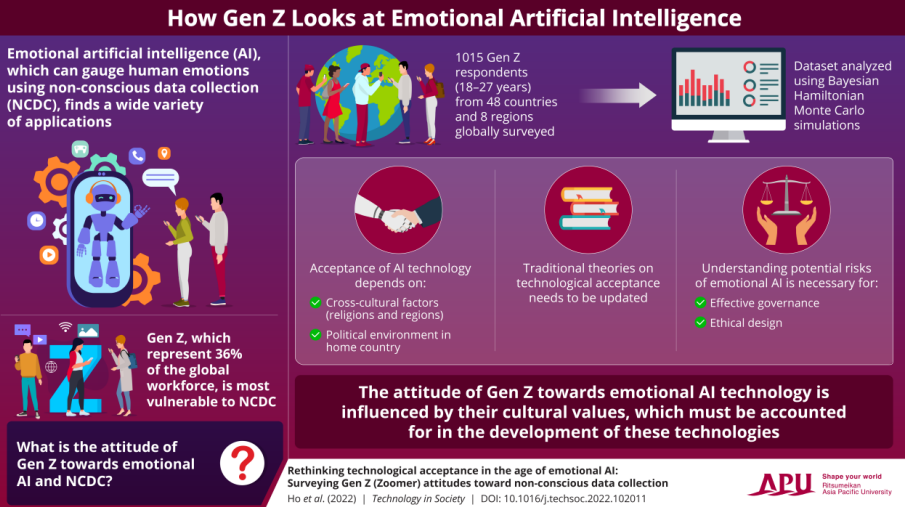Study Says Gen Z Is Chill About AI Collecting Their Non-Conscious Data

AI is everywhere, in every app, service, and device that you can think of. This gradual involvement of AI in our lives is unquestioned by most of us. We agree to data collection like it is no big deal. A study revealed that Gen Z is most comfortable with companies capturing and using their data without disclosing much.
A team of researchers, including Prof. Peter Mantello and Prof. Nader Ghotbi of Ritsumeikan Asia Pacific University, Japan, Manh-Tung Ho, Minh-Hoang Nguyen, and Hong Kong T. Nguyen, who are Doctoral students of Ritsumeikan Asia Pacific University, and Dr. Quan-Hoang Vuong of Phenikaa University, Vietnam embarked on a study to understand the Gen Z response towards emotional AI.
What is Emotional AI and what does the study reveal?
Emotional AI is a subset of AI which uses non-conscious data collection techniques to understand the mood and feelings of the users. It factors in attributes like heart and respiration rate, voice tones, micro-facial expressions, gestures, and more. Gen Z makes up 36% of the global workforce and is most susceptible to Emotional AI as per the study.
The team surveyed 1015 Gen Z respondents spanning 48 countries and 8 regions to learn about their attitude towards non-conscious data collection. More than 50% of users showed a genuine concern about data collection and how it was being used to target them with products and services. But the concern varied from user to user because of factors like gender, income, education level, and religion.

We seldom stop to think about how intertwined our lives have become with AI. The phone has it, the fitness band/smartwatch has it and other gadgets also have it. We never think about our personal data as much as we think about our digital presence. Companies continue to collect and exploit the data, sometimes to improve their product and sometimes to sell you that product.
The study also reveals that there is still a lot of ground to cover when it comes to understanding NCDC. Users are still not aware of such invasive data collection techniques and should learn more about their impact.






